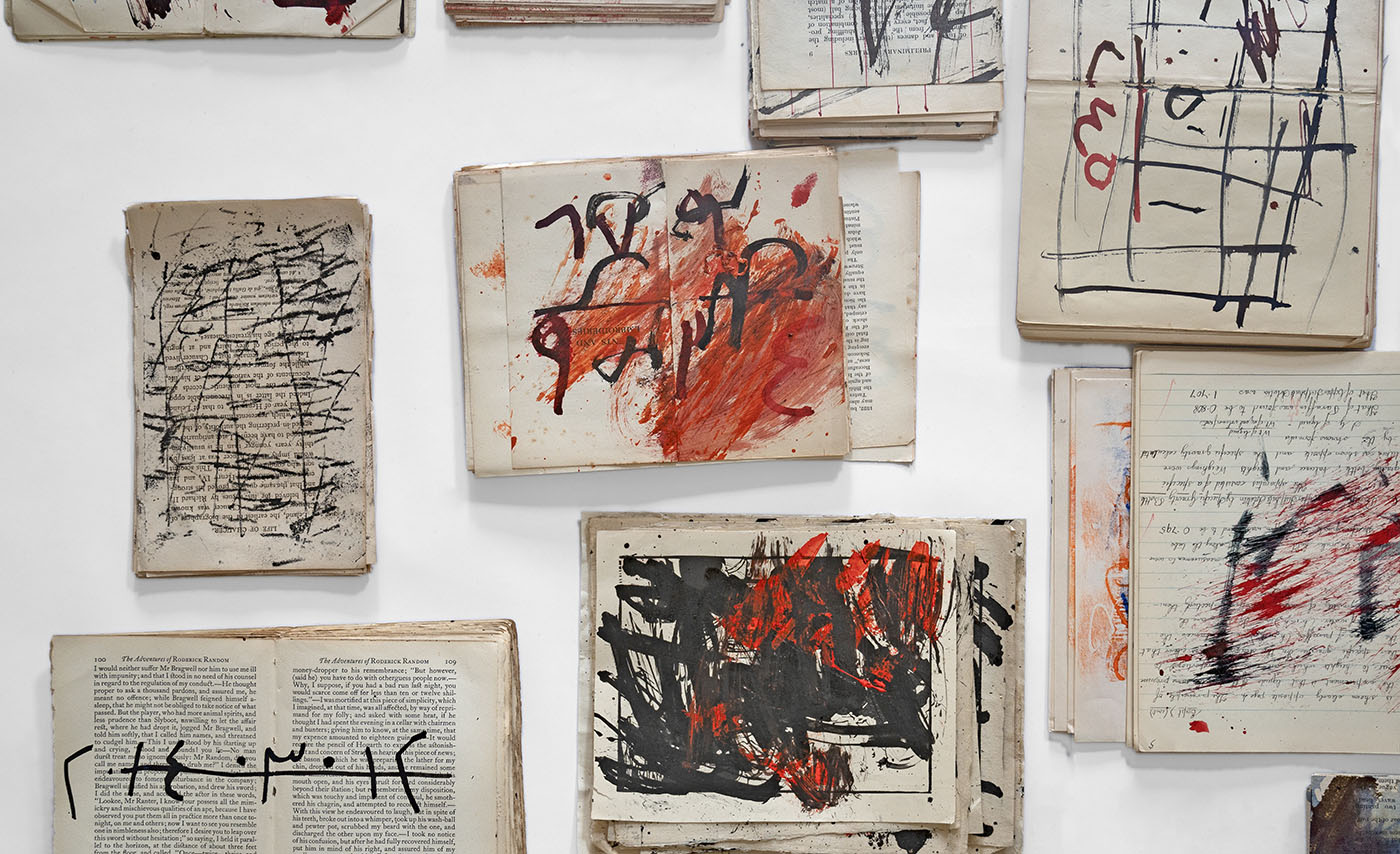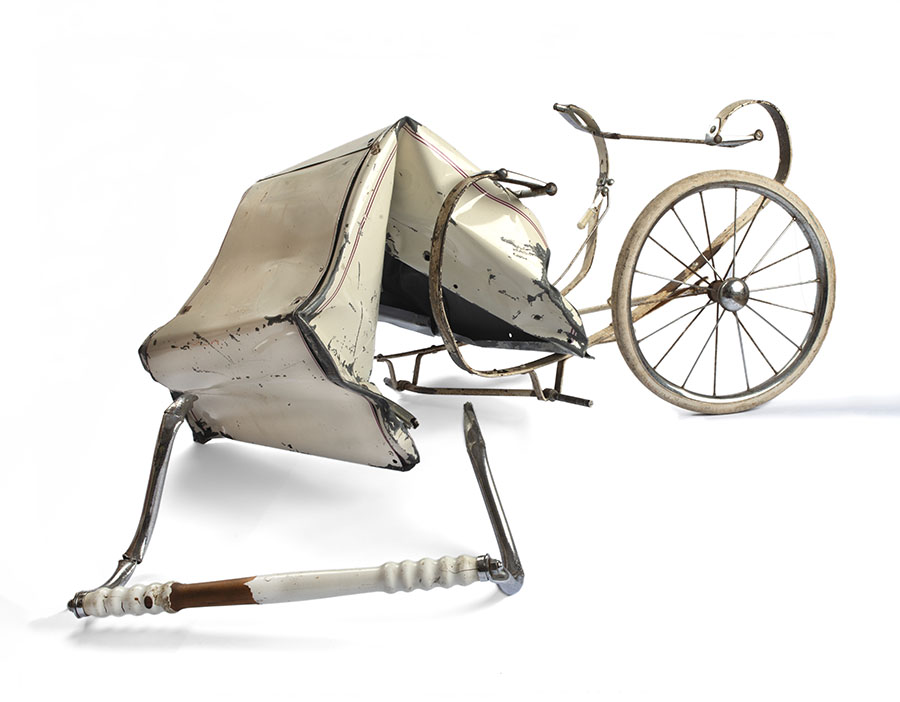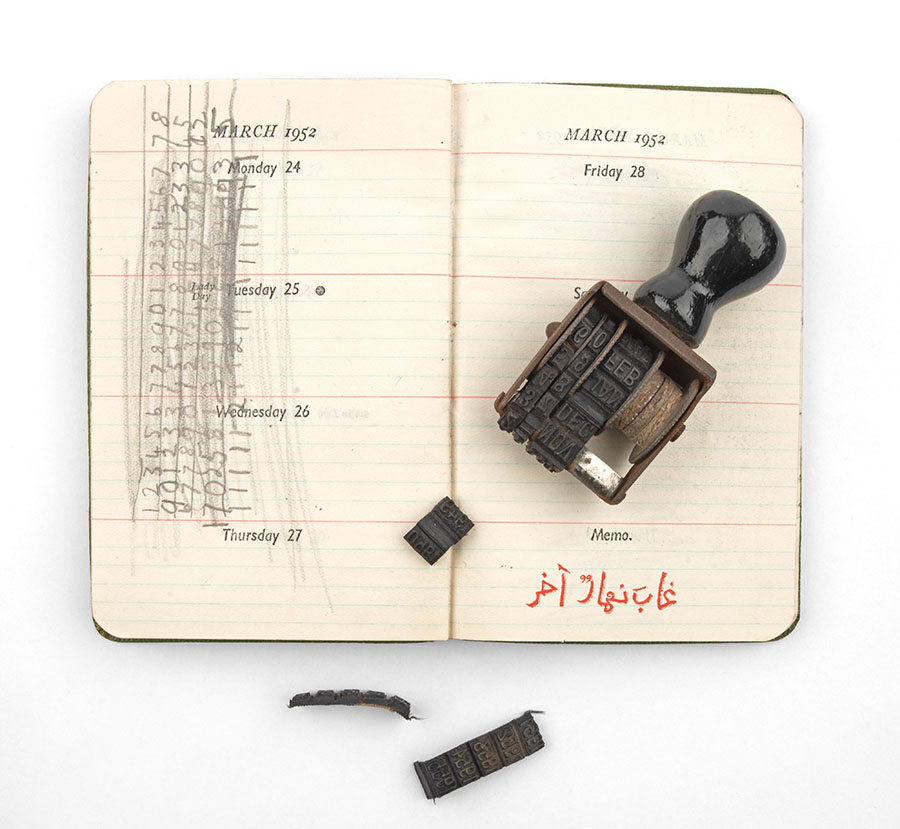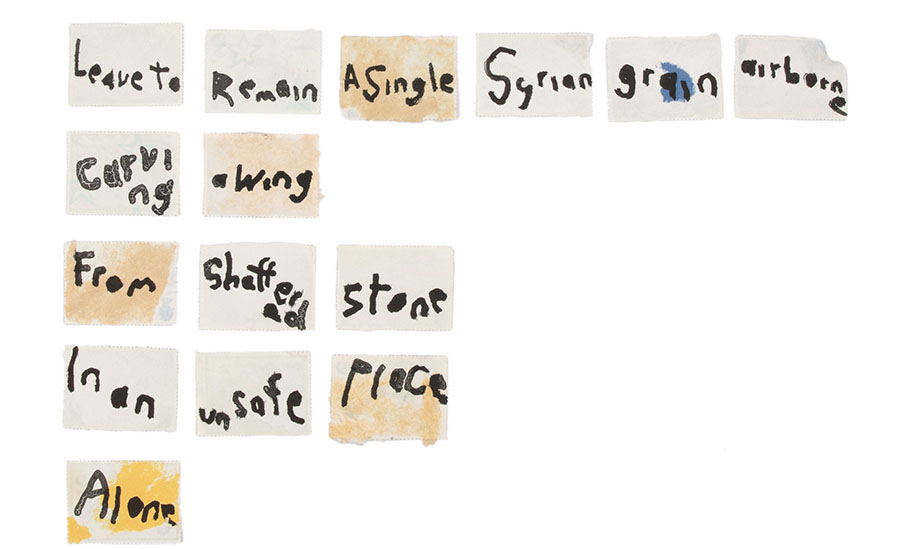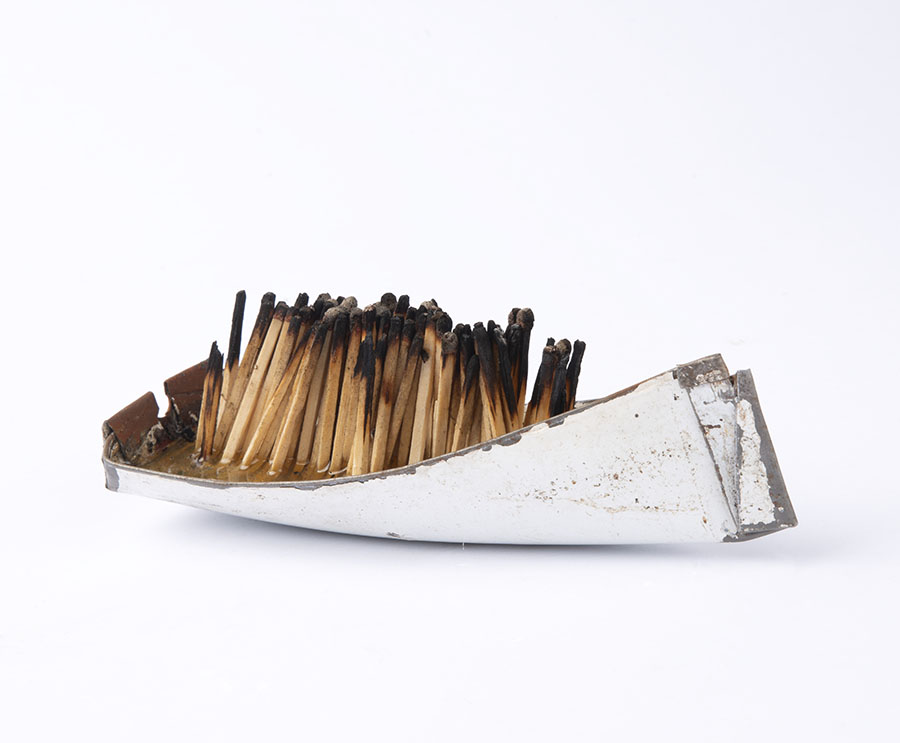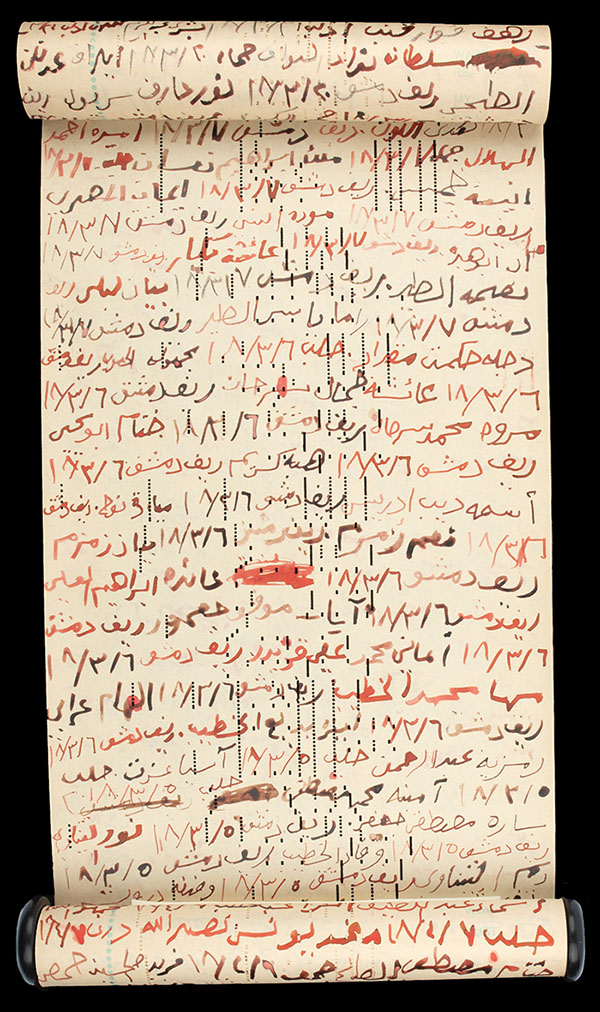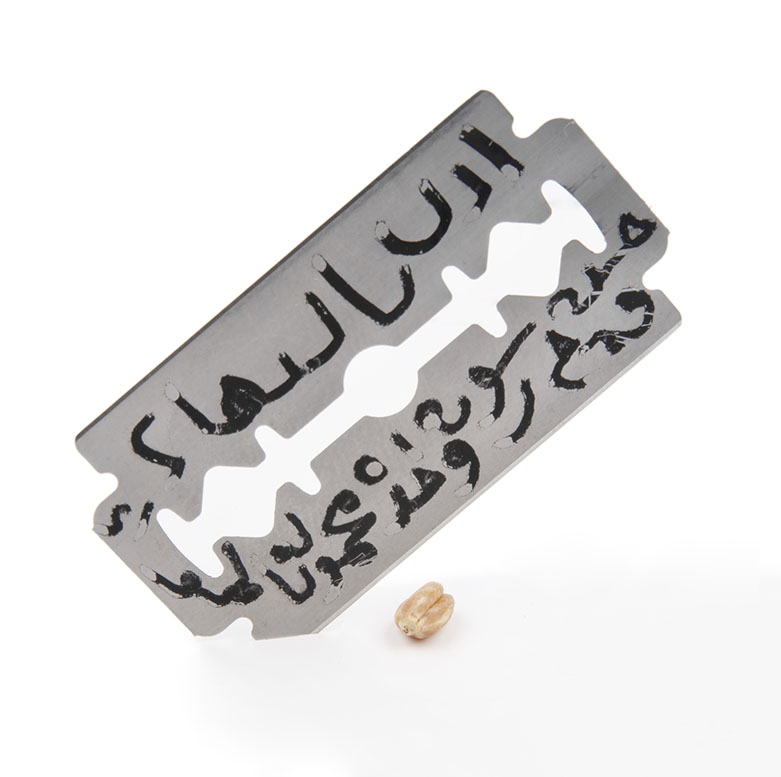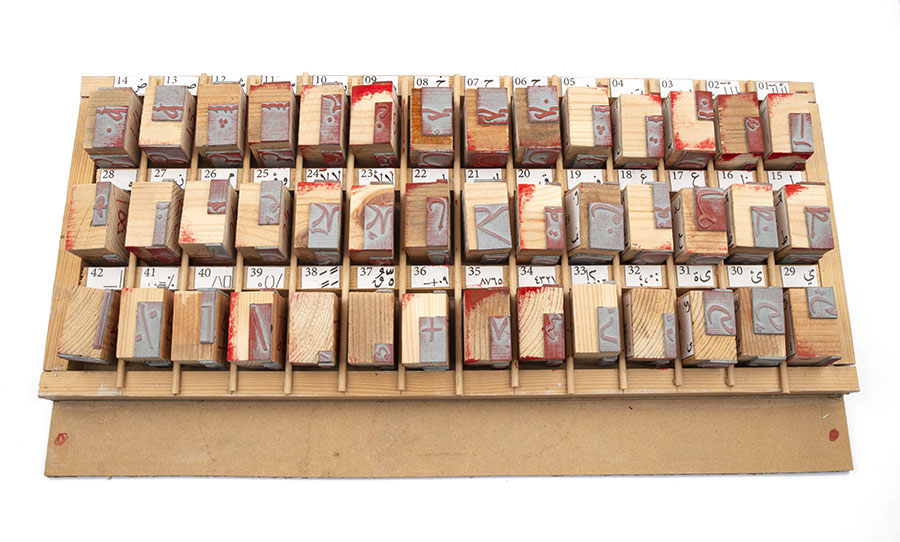The razing of Gaza is reminiscent of the wholesale destruction of Syria seemingly forgotten by the world. In a corner of Britain, one artist keeps the memory and his creative commitment to his country alive.
Exhibition preview: Issam Kourbaj: Urgent Archive, at Kettle’s Yard, Cambridge, March 2 to May 26, 2024
Sophie Kazan Makhlouf
When the artist Issam Kourbaj was first asked to create a retrospective exhibition for the University of Cambridge’s modern and contemporary art gallery at Kettle’s Yard, about his time in Cambridge, he refused. Kourbaj reasoned that a more urgent focus for any art exhibition were the events happening in Syria. From the total estimated 306,887 Syrians to have been killed between March 1, 2011 and March 31, 2021 due to the conflict, the UN estimates that more than half of these people were not identified.
The resulting exhibition of Kourbaj’s work, Urgent Archive, curated by Guy Haywood with Amy Tobin, will open at Kettle’s Yard on March 2, 2024. The artist, a seasoned resident of this renowned university city of over 30 years, will be visiting the gallery regularly to add, omit and shift the exhibition works to give it, he says, a feeling of relevance.
The Syrian-born artist has, for many years been creating work that responds to the country’s destruction and the humanitarian crisis that has separated him from family and friends. The exhibition at Kettle’s Yard will contain an array of mixed media work that includes some recognizable pieces from past exhibitions. These include a selection of small boats from the Dark Water, Burning World (2016) installation that Kourbaj showed at the Fitzwilliam Museum in 2017 and later in the British Museum’s Living with Gods exhibition in 2017 and 2018.
Two years later, the boats were famously selected as an addition to the 100 objects that the BM’s then director, Neil McGregor, had chosen in the History of the World in 100 Objects. Made from recycled bicycle mudguards and half-burned matches —none completely dead, Kourbaj notes — these boats commemorate the resilience of migrants, escaping traumatic events and sometimes perishing at sea.
In another exhibition entitled Scaling the Dark in 2021, at the Tropenmuseum in Amsterdam, 122 boats such as these, which represented the 122 months of the Syrian crisis (at the time) along with seeds and sand, formed part of an installation by the artist. Seeds continue to represent an important theme of life, growth and also the scarcity of bread and starvation suffered by the Syrian people.
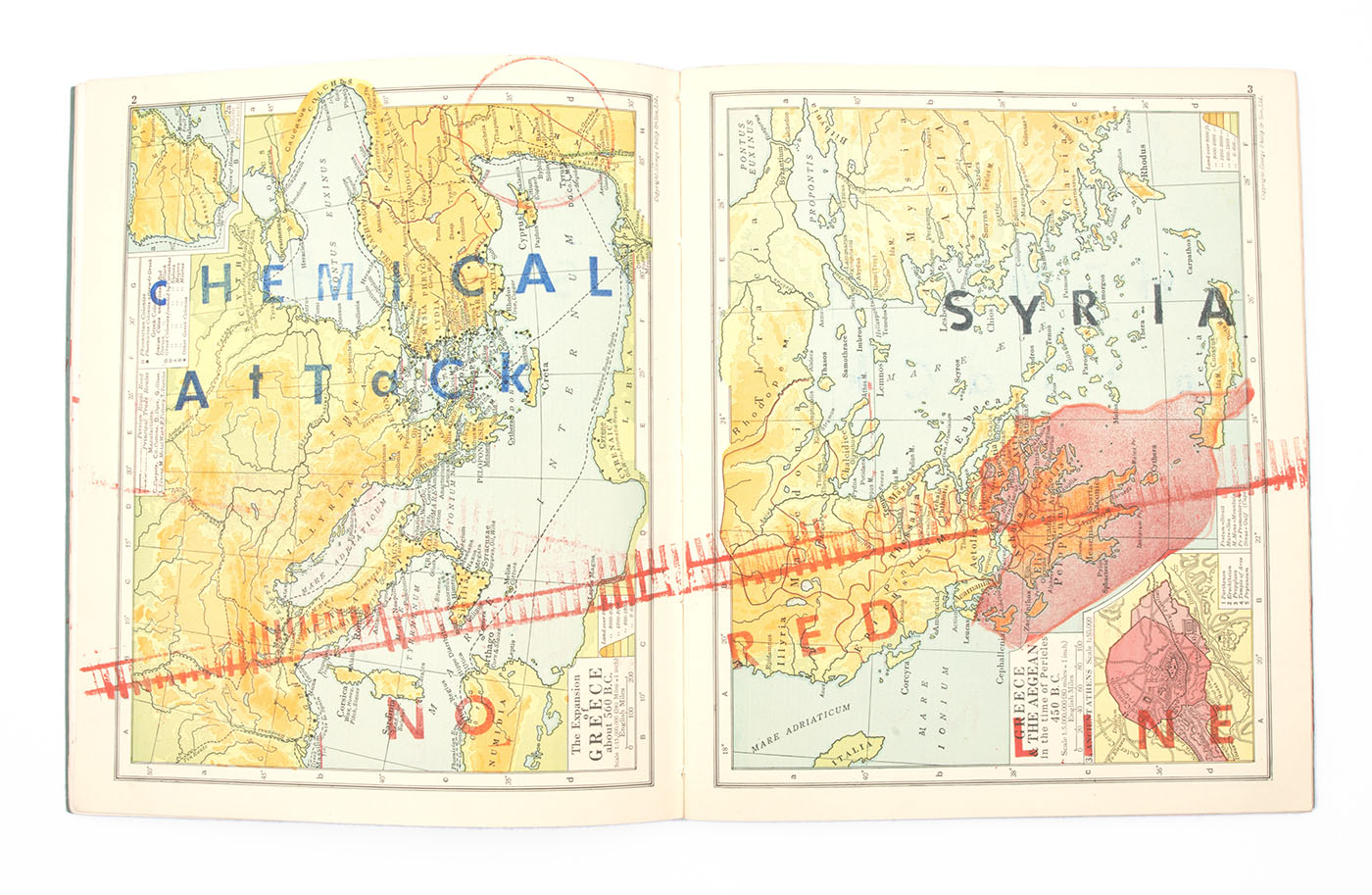
After completing a first Fine Art degree at the University of Fine Art in Damascus, Kourbaj then gained a grant to study architecture at the Repin Institute of Fine Arts and Architecture in Leningrad (St. Petersburg). It is this and perhaps also his time at the Wimbledon School of Art, studying theatre and set design that inspired the artist’s references to space and place-making. Defaced Intermediate Historical Atlas (2019) are the double pages of an atlas, with a blood-red line struck across the map of Syria and the conflicting words “No Red Line,” added to the lower half of the map.
This seems to confirm the nonsensical nature of the country’s political situation and it also makes the destruction of Kourbaj’s homeland and the places of his memories all the more tragic. Destruction, change and rebuilding are no strangers to Kourbaj, which is why, over the 12-week exhibition, he will be ensuring that the ideas and works remain significant to the exhibition and that they maintain their urgency. “Many of the artworks have never been exhibited before,” says Kourbaj. “If I could invite other people from other cultures to identify or feel that something touches them,” he adds with a modicum of modesty, “that is a great bonus, but I don’t want to talk about only me.”
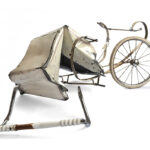
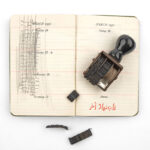
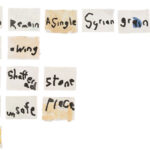
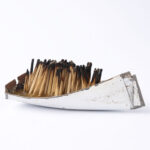
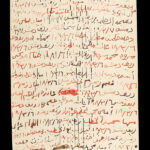
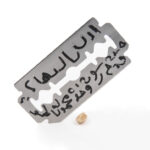
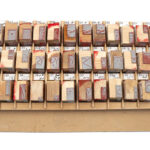
As part of Urgent Archive, Kourbaj has also planted wheat seeds in the gardens of the gallery and in nearby Downing College. “These are Syrian wheat seeds that were donated by ICARDA (the International Centre for Agricultural Research in the Dry Areas) in Cambridge,” he tells me. The organization is a development and research agency focused on reducing food poverty, climate change and promoting sustainability. “So ICARDA went to… the world seed bank and … withdrew the Syrian seeds and multiplied them.” As part of the project, the Syrian seeds were planted in places such as the University’s Botanical Garden and the Royal Botanic Gardens at Kew in London. Kourbaj hopes to be able to harvest the wheat during the exhibition and perhaps even make Syrian bread. “You could see the future is implied. I am planning a seed … there is hope, yes, but not a naïve hope,” he counters.
Two other works that are included in Urgent Archive are Threat (2020), an installation containing a wheat seed held underneath a razor blade and The Message (2020). This installation depicts a single Syrian wheat seed inside a glass bottle — representing a last hope or communication with the “outside world.” The artist’s deep connection and continued thoughts about his homeland seem to permeate every aspect of his creative practice. He explains the importance of his work, not for the viewers of the exhibition but as a means of communication with his friends and family in Syria. “This is the only bridge I have,” he says, “it is a struggle [but] it brings me closer [to Syria] … it tells them ‘I am thinking of you.’”
The reappropriation of found objects, photographs, drawings, a crushed pram which forms part of one of the installations in the exhibition, Capsized, 2020, are intrinsic to the artist’s process. He explains that he is bringing the history or memories of different objects to create new ideas. For the London’s Shubbak Festival, which offers “a window on contemporary Arab culture” several years ago, Kourbaj created Another Day Lost (2015). This was a group of installations set up at five locations throughout London. Each of these positions related approximately to the placement of camps along Syria’s southern border with Lebanon, Iraq, and Turkey and the camps were denoted with tents made from discarded objects and paper, folded into square and rectangular shapes. Circling the outside of these camp installations was a row of half-burnt matches representing the days since the Syrian uprising in 2011. The artist arranged for a match to be added during every day of the two-week exhibition.
Time, represented either by a date, a month or a year or time, counted by number of days is another important theme in Kourbaj’s work. The same title, Another Day Lost (2019), as the artist’s Shubbak Festival installation, is reused for a work that was perhaps included in the latter: an old diary and a broken rubber date stamp. Similarly, rows of date seeds and another piece depicting date seeds counting the days since the Syrian uprising that have been painstakingly embroidered onto cloth are also featured. “It actually comes from the song called, “Rab Al Nahar Al Ahad.”
Kourbaj is always interested in making connections and exploring contradictions. Urgent Archive is about bringing together objects and places that work with or confront each other in an effort to make people think about the situation in Syria or question their own perceptions of war, migration, and displacement.
As an Arab artist, he jokes ironically that, “with the news of what is happening in Syria [and] with the news of what is happening in Palestine — with the news of what is happening around the world — we are not short of material!”



